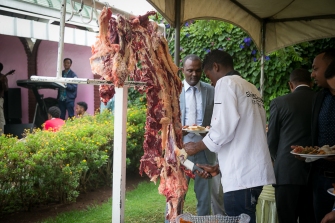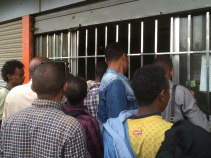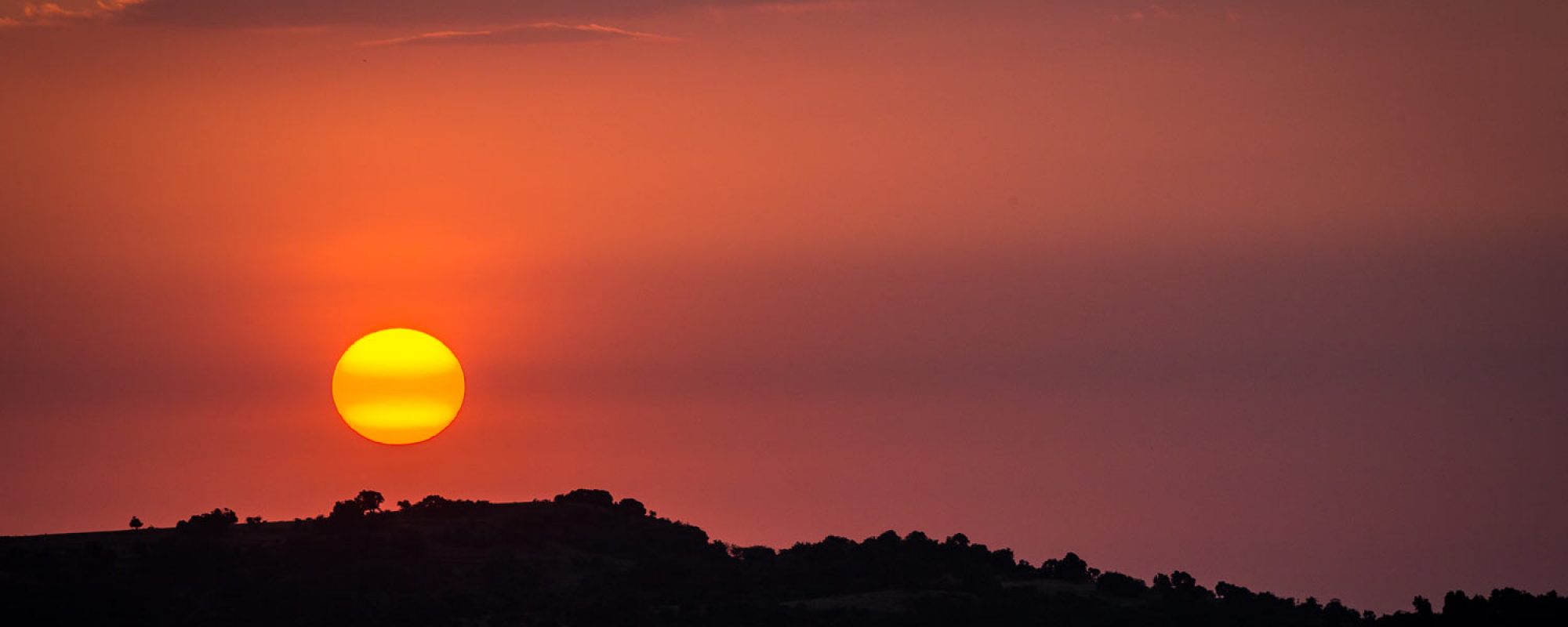CALENDAR
In Ethiopia, they use their own calendar, similar to Julian, which means they are 8 years behind us! (2018 for us would be 2010 for them, as we follow the Gregorian calendar). They name their own months, having 12 months of 30 days and one of 6 days (7 in the leap year). That can be inconvenient for people who come for work and collect invoices and receipts and they don’t accept it back home as they date 8 years before their visit!!! The state always to have it written in the international calendar!
TIME
Unlike the rest of the world, they have their own time system as well, which can be very confusing for us. In fact, it makes more sense to me: the day is divided into 12 hours of light and 12 hours of darkness. So, let´s say, 7am (for us) is 1am (for them) as it is the first light hour. Now you know the rule: add or deduct 6 hours to convert. If it is 2 for us it is 8 them, and vice-versa. This is very important, as appointments, taxi pickups and autobus rides (just to mention few) may be stated in the Ethiopian time. Be aware and ask in case of doubt. Just say: “Is that in International time or Ethiopian time?”
ATHLETICS
 I deliberately named this section “athletics” and not “sports” because sports would be like naming something out of Ethiopian reach. Sadly, the country is really poor at it. The only exception is, I would say, athletics, where they have the best long distance runners of the world, along with Kenya.
I deliberately named this section “athletics” and not “sports” because sports would be like naming something out of Ethiopian reach. Sadly, the country is really poor at it. The only exception is, I would say, athletics, where they have the best long distance runners of the world, along with Kenya.
The history of Ethiopian athletics has given names like Haile Gebre Selassie, Kenenisa Bekele, the Dibaba sisters, Abebe Bikila, Derarta Tulu, Almaz Ayana, etc. I have had the chance to meet some of them and the level of sacrifice that this profession requires is beyond my understanding. Nowadays, Kenya seems to be a bit ahead of Ethiopia, but still, there is a generation of young people who dream of being the next medal winner. Good luck to them!
Ethiopians do love football and they watch it all the time, especially the English Premier League. They are getting better at playing, but still very immature for international competitions as history has proved.
SPICES


Unlike any other place where we just go to the supermarket and get our spices, Ethiopians (like many other Africans) make their own, which is awesome! Only recently and due to the work pressure, some are starting to buy packaged spices, though not believed to have the same quality. Generally speaking, homemade food is pretty common, not only for spices but for stews, bread and others. They will collect the seeds, dry them on the floor, recollect and clean, grind and finally make into whatever is meant to be.
SCAFFOLDING
 Don’t get surprised if you see that buildings under construction are being held by wooden scaffolding. Lately, some companies are trying to introduce international standard iron scaffolding, but the most common use in the country is wood: improvised structures made from eucalyptus trees by the workers before and while undergoing the construction of the building. I have been taking pictures of buildings in a couple of occasions and I must confess that it is pretty scary! At the same time, I’m surprised by their ability to build from nothing. Necessity obliges!
Don’t get surprised if you see that buildings under construction are being held by wooden scaffolding. Lately, some companies are trying to introduce international standard iron scaffolding, but the most common use in the country is wood: improvised structures made from eucalyptus trees by the workers before and while undergoing the construction of the building. I have been taking pictures of buildings in a couple of occasions and I must confess that it is pretty scary! At the same time, I’m surprised by their ability to build from nothing. Necessity obliges!
FASHION / LEATHER
 Ethiopia is well known for the quality of its leader. Many companies, aware of it, are establishing its factories here (not only for that reason though but for the labor price too). Ethiopians are also catching up and producing local leather brands that are, little by little, hitting the international market as well. Fashion design is growing rapidly, being promoted through different events and with one of the Ethiopian main assets: its models. Ethiopian modeling career is still at its very early stage, but Ethiopian models are well known around the world for its beauty. Agencies still have a lot to do regarding their training, but the potential is definitely there
Ethiopia is well known for the quality of its leader. Many companies, aware of it, are establishing its factories here (not only for that reason though but for the labor price too). Ethiopians are also catching up and producing local leather brands that are, little by little, hitting the international market as well. Fashion design is growing rapidly, being promoted through different events and with one of the Ethiopian main assets: its models. Ethiopian modeling career is still at its very early stage, but Ethiopian models are well known around the world for its beauty. Agencies still have a lot to do regarding their training, but the potential is definitely there
MUSIC
Music is very rich and diverse in Ethiopia. They use their own modal system, which is pentatonic. Each region has its own traditional music and dances. I had the chance to work on a couple of music documentaries that have exposed me to the richness of the culture of the country, which deserves a chapter by itself.
Religious music has a big presence in daily Ethiopia and you will find yourself listening to psalms all the time in buses, minibusses and public spaces with very loud speakers placed everywhere.
Ethio-jazz deserves to be mentioned too as it is also a very well known style worldwide. You can listen to some of the best Ethio-jazz in Malacu’s place: Fendika (around Kazanches) every Monday with their jam sessions performed by Negari band. Mulatu Astatke’s place, Jazz Village (Ghion Hotel) offers jam sessions every Thursday too, led by the terrific saxophonist Jorga Mesfin. Other hotels like Jupiter Kazanches offer spectacles as well.
If you are interested in getting to know some of the best Ethiopian music I can’t help but recommend the series “Ethiopiques“, which you can easily buy online. It is a more than 30 volumes compilation (and growing) of Ethiopian music done by the French guy, Francis Falceto, and it is a great way to start with. Here is a 1-minute sample of what that music looks like:
If I was to recommend a film to get familiar with the music of the country that would be Quino Piñero’s road documentary film: “Roaring Abyss” which is currently touring the world and that portraits most of today’s musical landscape of Ethiopia. Its second part, “New Voices in an Old Flower” has recently been released and it focuses exclusively on Addis Ababa. A very serious job that took him three years to complete.
MEDIA
 After years of a state-owned radio and TV station (the current EBC), Ethiopia has opened recently to private licenses countrywide. The biggest phenomenon that happened lately is the launch of KanaTV, a TV station that for the first time in Ethiopian history has dubbed foreign films, TV shows and soap operas in Amharic, having engaged with most of the country homes. It is a phenomenon that it won’t pass unnoticed to you and its melody will be part of every stop on your trip.
After years of a state-owned radio and TV station (the current EBC), Ethiopia has opened recently to private licenses countrywide. The biggest phenomenon that happened lately is the launch of KanaTV, a TV station that for the first time in Ethiopian history has dubbed foreign films, TV shows and soap operas in Amharic, having engaged with most of the country homes. It is a phenomenon that it won’t pass unnoticed to you and its melody will be part of every stop on your trip.
English newspapers include Fortune, Capital, Ethiopian Herald, and Reporter, and it is a good way to stay up to date while you visit the country. Well-known online sites include EthioTube and DireTube (video streaming sites), addiszefen (for music), or ethiojobs (for employment). BBC has recently launched services in Ethiopia providing coverage in Amharic, Tigrinya and Afaan Oromo.
APPOINTMENTS
You’ve got to learn how to say this: “Yehabesha Kataro”. It means, “Ethiopian appointment” which is the excuse for anybody not to be on time. People can be extremely late and still tell you that they are almost there, that they are coming or that they are about to reach their destination when the truth is that they are still having coffee at home with their grandma. Be ready: they will just be late.
DRIVERS
 Many drivers in Ethiopia are dangerously empowered. They probably get their licenses in suspicious ways, which means that they don’t have the formation that driving requires. Examples: they don’t seem to know that to turn left or right you need to use the intermittent light, that you need to drive on your lane and not in between two, stepping on the line, or that you cannot make “U” turns on a straight line in between lanes. That said, they obviously cause numerous accidents and you just have to have extremely careful both as a pedestrian or driving here (if you dare too).
Many drivers in Ethiopia are dangerously empowered. They probably get their licenses in suspicious ways, which means that they don’t have the formation that driving requires. Examples: they don’t seem to know that to turn left or right you need to use the intermittent light, that you need to drive on your lane and not in between two, stepping on the line, or that you cannot make “U” turns on a straight line in between lanes. That said, they obviously cause numerous accidents and you just have to have extremely careful both as a pedestrian or driving here (if you dare too).
SHORTAGES

Get ready to experience a shortage of specific items at certain times. The country will run out of it and you will only be able to get it at 3 or 4 times the original price (if lucky to get it at all) by people who have stored it for times of scarcity. These items include mainly and most frequently petrol for your vehicle and sugar, but there may be others added to the list. Not being something dramatic, it can be annoying not to be able to get your sugar on your coffee or to fill the tank. By the way, when the stations get back to normality, be ready to experience long queues on the first days. You better be ready!
WOMEN & CHILDREN
 Ethiopia is a patriarchal society. Men have historically been the rulers of the mambo here, until recently. Early Marriage, FGM and marriage by abduction was common (and still is, though prohibited) in some parts of the country, especially in rural areas.
Ethiopia is a patriarchal society. Men have historically been the rulers of the mambo here, until recently. Early Marriage, FGM and marriage by abduction was common (and still is, though prohibited) in some parts of the country, especially in rural areas.
My observations tell me that children are treated with little respect and abusive power and they are often educated with a stick (by the teachers) or fear of the belt (by their fathers). That creates nothing but inhibited people with little confidence and very violent in the future. For them, the way other people outside Ethiopia educate their kids is weak and represents no authority at all (which, in some extremes where kids have taken over, may sadly be the truth as well).
As per women, they have mostly been working at home until recently (some of them still are). Many efforts are being made institutionally, through NGOs, government policies and other groups, to empower women and stop any type of violence against them. However, in my opinion, Ethiopia can still today be openly considered a sexist society in many aspects of life, where men play an authoritarian superior rule against them.
We did this short film in 2016 to try to highlight this situation, portraying a simply given day on the life of any given Ethiopian woman in an urban area. The script was written by my Ethiopian friend Hanna Haile (an awesome writer and poet who organizes poetic Saturdays open to the public the last Saturday of every month at Fendika, Kazanches):
SEXUALITY
Ethiopia can be considered a very religious and conservative country, but early relationships are common. However, a probation period is expected among couples before sleeping together.
Early marriage and not consented sex have been widely practiced in the countryside until recently.
Prostitution is very frequent in the streets and clubs of Addis. I once read that 90% of the girls you meet in a bar would probably be a prostitute. Today, the liberalization of women has outdated this estimation, as many women go out to party like any other given man. However, it is normal for some students and other teenagers to consider paid sex as a way of income for her studies or other needs.
Acts of homosexuality are forbidden in the country and punished by law from 1 to 15 years.
SHARING FOOD
Learn this: “Bicha yebelá, bicha yimotal”, which translates to “whoever eats alone, dies alone”. Ethiopian is extremely generous when it comes to food, and even a starving beggar, when looked at while eating, will offer to share his food with you. No matter where who or the situation you are at, everybody will say “Enneblá” which means, “let’s eat together”. Sometimes they may not truly mean it, but you are socially obliged to at least say it, and, if accepted, share your food with anybody that crosses your path. That says a lot about the generosity of a country that has gone through droughts and famine in several occasions.
SOCIAL GATHERINGS
 Although as a tourist you will probably not attend one unless invited, you may observe them from afar. Mourning for the death, weddings or baptisms are common occasions to meet with family and friends, eat, drink a lot, talk, gossip, and basically, spend the day enjoying the company. These ceremonies can be very attractive in the beginning and very long and tedious at some point. Hospitality is commonly practiced and you are expected to attend, eat, drink and stay for some time if invited. Warning: on special dates, raw meat is a classic. Don’t be obliged to eat it, but if you really want to try, a bit of spice can help killing bacterias (except that you’ll get sick anyway).
Although as a tourist you will probably not attend one unless invited, you may observe them from afar. Mourning for the death, weddings or baptisms are common occasions to meet with family and friends, eat, drink a lot, talk, gossip, and basically, spend the day enjoying the company. These ceremonies can be very attractive in the beginning and very long and tedious at some point. Hospitality is commonly practiced and you are expected to attend, eat, drink and stay for some time if invited. Warning: on special dates, raw meat is a classic. Don’t be obliged to eat it, but if you really want to try, a bit of spice can help killing bacterias (except that you’ll get sick anyway).
HOLIDAYS
There are several important holidays in Ethiopia, most of them related to religion. They are all respected nationally as public holiday and messages of celebration are exchanged among different Ethiopians in spite of their beliefs.
 Epiphany, or “TImkat”, (January 19th or 20th).
Epiphany, or “TImkat”, (January 19th or 20th).- Easter, or “Fasika”, (April)
- Adwa Victory Day, (May 2nd)
- Freedom Day (May 5th)
- Derg Downfall Day, (May 28th)
- Ethiopian New Year, (September 11th or 12th)
- Finding of the cross, or “Meskel” (September 27 or 28th)
- Eid al Fitr, (changes every year)
- Prophet’s Birthday, (changes every year):
Apart from these, there are other religious festivities that, not being considered public holidays, people respect and attend, mainly going to church. Half as a joke, an Ethiopian friend told me once that “a country that is on holidays for almost half of the month can never grow”, which I found very hilarious if maybe a bit exaggerated and drastic.
“KHAT” (pronounced “Chat”)
Welcome to the country of legalized drugs. Well, that’s an overstatement but… yes, “khat” is considered a drug in many parts of the world where it has actually been forbidden. However, it is one of the biggest businesses in Ethiopia. “Khat” is grown here and consumed all around the country (especially in the east) and exported to different areas of the world (especially Arab countries). It is a plant that they chew for hours in a way that stimulates them, keeping them awake (that’s why drivers and students use it), cheats their hunger (that’s why poor people use it) and empowers their creativity (and that’s why artists use it). I never truly knew what to think about it, as I tried it myself without much effect, but recognizing the damage that has done to many people, even though the country socially accepts it for its economic benefits.
QUEUES

Simply put, there are no queues in Ethiopia. No matter where: bank, food store, pharmacy, public building, hospital,… you name it. They do not know what a line means (or maybe they don’t want to know). The rule? Try to get to the window as fast as you can and, if necessary, overpass and step into their business and interrupt others that may have arrived before you. Just like that. Still incomprehensible to me!
THEFT
Violent acts are not very common in Ethiopia. I feel very safe here and I walk at night without hesitation. Women do too, especially in urban areas. Shit happens? I’m sure it does, but not as much as in other parts of the world. I never experienced violence in Ethiopia (but I heard of people who did). I have been stolen my mobile in a couple of occasions but without me noticing it, and, if I noticed, the little thieves just run away. Watch out for the kids selling newspapers or chewing gum, as they work in a team. So, yes, expect a safe country during your visit but keep your belongings safe: an iPhone or an iPad can be a big temptation for somebody who does not have a job and can probably sell it quickly and at a good price!
FOREIGNERS WELCOMED?
Many foreigners will find a peculiar pride in the “Ethiopianness”. Probably justified by the non-colonial past of the country and their former victories against Italian invaders, there is an underlying general phobia to the outer world and to lose its authenticity. For the most extreme “preachers”, whatever comes from outside Ethiopia (the West, like they say) is evil and only true Ethiopians will have the strength of being away from this “western” influences, which translates to every aspect of life: food, clothes, music, language or behavior can enter in this category.
I have mixed feelings about it as I see the two sides of the coin. In my opinion, this is a very patriotic and protective mentality that waters the garden of every aspect of Ethiopian life, from conversations to social gatherings. Underneath a very welcoming attitude toward the tourists, it lays a subtle rejection towards whoever, not being Ethiopian, tries to stay longer and, somehow, endangers them.
On the streets, the common words they will use to appoint anybody coming from outside its borders will be: “feranji”, which means foreigner (which comes from the word “French”), “China” (even if you are not from there), “Nech” (white), “Kay” (red), “Ante” (you)… For most people, this does not imply anything exclusive, but personally, I believe that pointing a person based on a country of origin or a skin tone has undoubtedly racists implications, whether subtle and unknown or consciously made.


Me ha encantado leer el blog, y aunque llevo un año y medio viviendo en Addis he aprendido un montón!
Un abrazo y gracias por tu creatividad e iniciativa, Monica
LikeLike
¡Gracias por tu comentario Mónica! Si crees que falta algo o tienes una experiencia distinta ya sabes, ¡no dudes en compartirla!
LikeLike